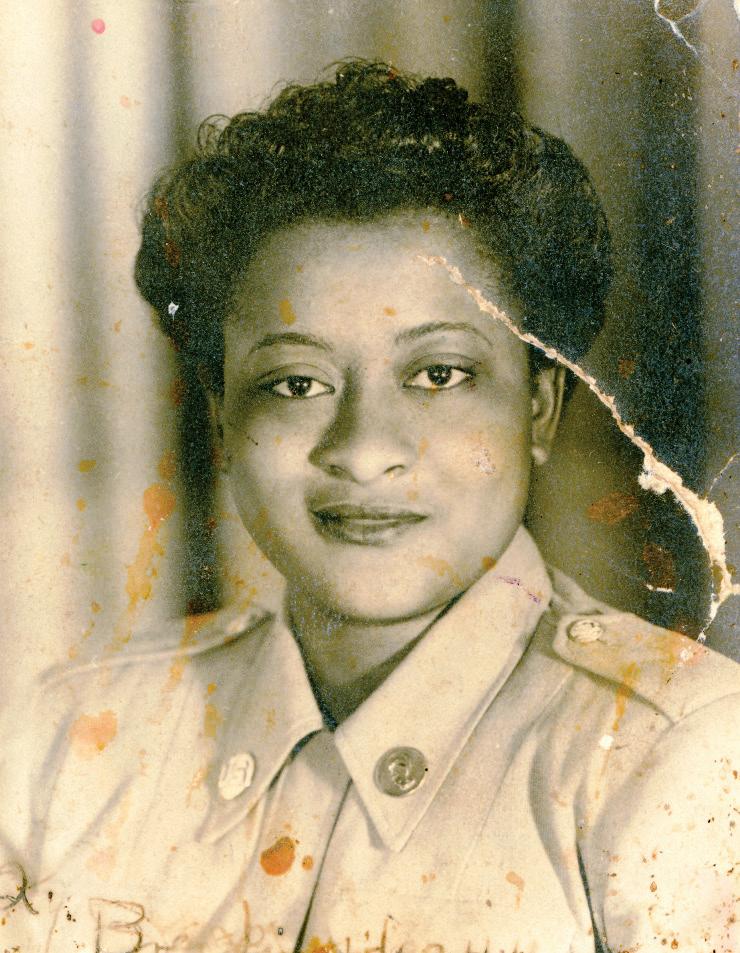
3 minute read
World War II featured heroism by black Johnstonians
from February 2020
by Johnston Now
By Benjamin Sanderford
Ernest Atkinson of Smithfield was wounded in Northern Italy four days before Germany surrendered to the Allies in 1945. He was sent to recover at a military hospital in Louisiana. While there, he and some fellow soldiers took a bus back to the hospital after touring the town.
Advertisement
The driver let all the white servicemen sit at the front but told Atkinson, still on crutches, to sit at the back.
“That brings a whole lot of things to your mind,” Atkinson said years later.
He was not alone. Ernest Atkinson was one of many black Johnstonians who served heroically during World War II but found themselves still defined as secondclass citizens because of their skin color.
No observer could deny that black servicemen sacrificed as much as their white comrades-in-arms in the fight against the Axis. Richard Raynor was killed in North Africa and, on July 24, 1945, Talmage “Cole” Sanders died after a Japanese torpedo struck his ship near Manila, Philippines.
Whole sets of brothers answered their country’s call.
Conley and Cleo Monk both served with the Army in Europe while Jacob, Walter and Ray Thomas Sutton were all deployed to the South Pacific.
These men served in segregated units, but their officers were usually white, a convention left over from the Civil War. Another old convention was to keep black men in non-combat positions. Henry Tomlinson, for example, was assigned to the Navy’s steward branch, which meant that he had to wait on the white officers.
However, black soldiers and sailors during World War II had more opportunity to serve on the front lines than during previous conflicts. Atkinson’s unit, the 92nd Infantry Division, took part in fierce fighting against the German occupiers of Italy.
Joe Franklin, meanwhile, was part of the 93rd Infantry Division, a unit that battled the Japanese in the Philippines with grim determination. At sea, Frank Penny took part in the Battle of the Atlantic, during which his ship, the USS Mason, rammed a German U-Boat, sinking it.
Black Johnstonian women also joined the armed forces. Among the first to enlist in the Army was Ruth Sanders, a housekeeper from Smithfield who signed up on April 15, 1943, as a stock record clerk based at Fort Bragg.
It was not glamorous work, but it was as necessary as fighting in the field and Sanders played her part in the victory of the United States.
For all these people, the war was a watershed moment, one that exposed the absurdity of segregation and discrimination. Army Captain Leon Penny, Frank’s brother, went on to serve in Korea, where he rose to the prestigious rank of lieutenant colonel. A Raleigh country club promptly invited Penny to join, and was then thrown into turmoil when he showed up.
“We were expecting Colonel Penny,” said one of the organizers. “I am Colonel Penny,” the soldier replied.
The invitation was withdrawn.
It was an ugly reality, but not inevitable. Hernando Palmer, one of the famed Tuskegee Airmen, trained at Ellington Field, Texas, where classes were integrated. Some of the white trainee airmen were French, and they had a noticeably relaxed attitude toward African-Americans.
While the white Americans shunned their countrymen, the Frenchmen shared quarters with Palmer and the other black Americans.
The message was clear: Segregation was not natural, it was cultural.
So what could they do about it? Ernest Atkinson knew what to do: They would gain political equality by “fighting with votes.”
With that thought in mind, Atkinson registered to vote soon after returning to Johnston County and got involved with the civil rights movement. The Penny brothers also embraced political activism, with Frank becoming vice president of the Southern Christian Leadership Conference’s Johnston County Unit.
Their efforts were rewarded with the passage of the Civil Rights Act (1964) and the Voting Rights Act (1965). There was still much work to be done, but the African-American men and women of Johnston, tempered in the flames of war, had taken a giant leap towards becoming fully-fledged citizens.
Benjamin Sanderford, a resident of Clayton, studied social science at UNC Greensboro. He can be reached at benwsanderford@gmail.com.
World War II featured heroism by black Johnstonians






